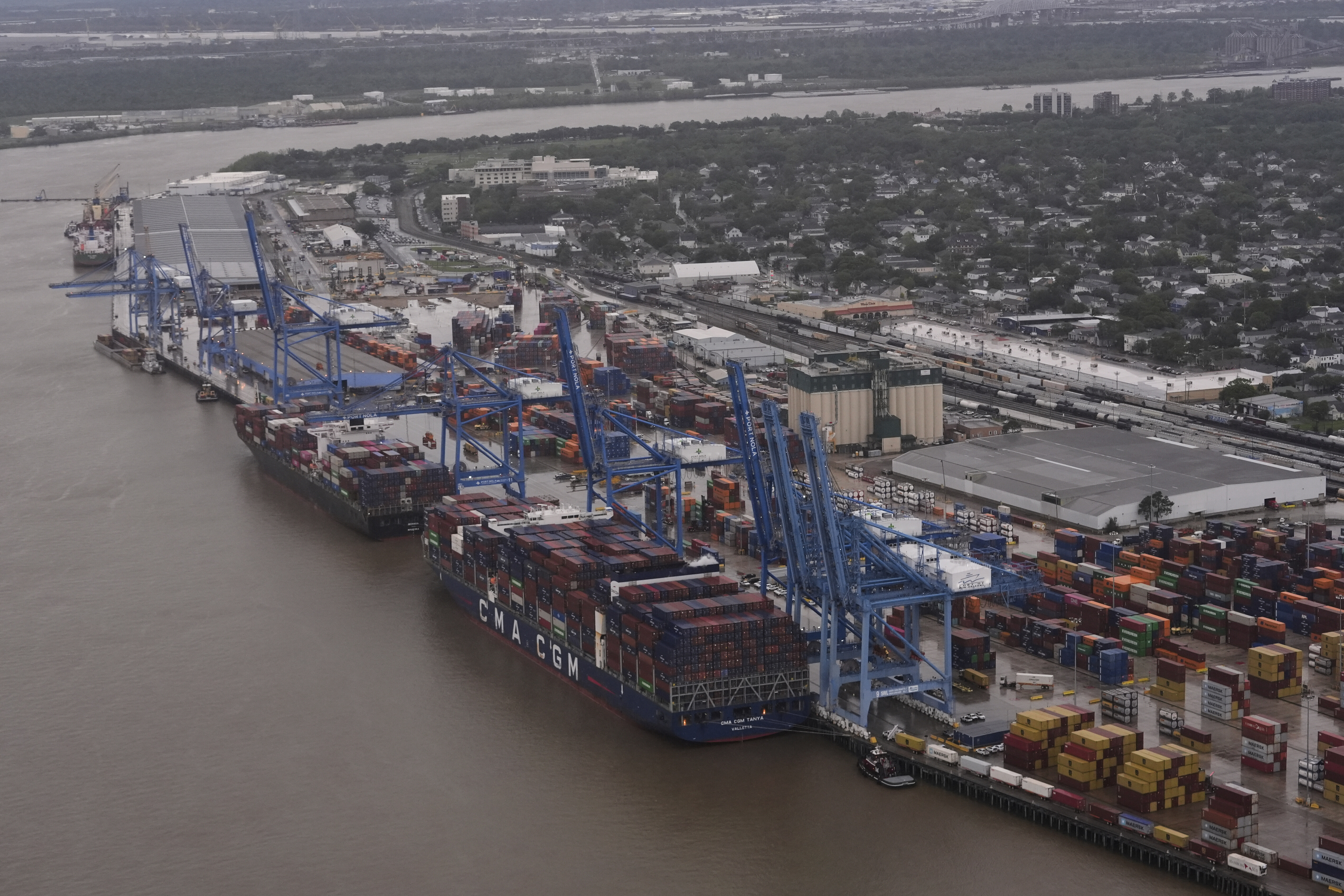Former U.S. President George W. Bush has a highway named after him in Tbilisi, Georgia's charming and gritty capital, to commemorate his lofty rhetoric in praise of the Caucasian republic's Western turn in 2003. During Bush's visit in 2005, the president even eschewed his famous early bedtime to dance the night away in the jubilant Georgian capital.
Much has changed since 2005, though. When Russian tanks rolled into Georgian territory in August 2008, Bush chose not to rise to the defense of the West's ally in the Caucasus.
But that was just the beginning. From the indignity of the imbalanced ceasefire negotiated by French President Nicholas Sarkozy, to gross caricatures in Western media of a tyrannical Georgian government, to Washington's awkward and fruitless "Russia reset" policy, Georgia has been pummeled by the very countries it considered to be its closest friends.
One particularly egregious recent affront is France's nearly finalized deal for the sale of Mistral-class warships to Russia. These ships, which are capable of carrying a full complement of helicopters as well as troops and equipment, are ideal for sea control and amphibious operations in the littorals of the Baltic and Black seas. Indeed, Russia's navy chief, Adm. Vladimir Vysotski, was frank enough to claim that, had the Russian navy possessed the Mistral in August 2008, it could have accomplished its mission during the Georgia War "in 40 minutes instead of 26 hours."
Although the Georgian population continues to register overwhelming support for integration into Euro-Atlantic structures, there are now indications that the country's political elite might be losing patience. In particular, former Prime Minister Zurab Noghaideli's recent emergence as a credible opposition candidate represents something of a sea change in Georgian politics. Noghaideli's reinvention as an opposition leader follows a well-worn path already blazed by former political allies of Georgian President Mikheil Saakashvili. But Noghaideli has taken a decidedly unique approach in his policy orientation.
In contrast with his opposition counterparts, who have energetically sought to court the West and showcase their Western credentials, Noghaideli visited Russia no less than four times in 2009 -- at one point even gaining audience with Russian Prime Minister Vladimir Putin. More interestingly, Noghaideli announced in January that he would be returning to Moscow in February to sign a "cooperative agreement" with Russia's ruling United Russia party. Noghaideli's provocative style not only broadcasts where his foreign policy preferences lie, but also rewrites the map of Georgia's post-Rose Revolution political landscape.
Naturally, the Georgian ruling party has been quick to slam Noghaideli's choice of friends, with similar concerns voiced by fellow opposition leaders, including Irakli Alasania, the former Georgian ambassador to the U.N., and Salome Zourabichvili, the outspoken former foreign minister. But tellingly, other opposition leaders have been somewhat more muted. Notable among them is Nino Burjanadze, Saakashvili's onetime ally and former parliament speaker, whose strong criticism of the government has been cited by Moscow in its own cautious outreach to the Georgian opposition. This suggests that some are adopting a wait-and-see approach to Noghaideli's foray, before deciding if there might be some political mileage in his strategy.
For a country still licking its wounds from the effects of Russia's August 2008 invasion, it may seem unthinkable that a Georgian politician would adopt a pro-Kremlin posture to win votes. But despite Georgians' strong support for NATO membership in the past, Noghaideli's flirtation with United Russia can be seen as a direct response to Georgia's stalled relationship with Brussels and Washington. That suggests that the West's distancing from Georgia that began in Bush's second term is nudging some Georgians to sour on the Euro-Atlantic integration project.
Noghaideli's gambit may be just the beginning. Tired of conflict and with Georgia's Euro-Atlantic aspirations seemingly unobtainable, some Georgians might find a Russian-dictated peace in exchange for guarantees of autonomy an appealing option. Such an outcome would amount to a major Western foreign policy failure. With Turkey's diversified foreign policy posture leaving it increasingly unreliable and Ukraine's election likely to result in a pro-Russian shift, Georgia represents the last truly Western-oriented country in a highly strategic, critical region.
With the easy access it allows to Europe, Central Asia, Russia, and the Middle East, Georgia is well-placed for both investors and foreign policy planners alike. Its location as a prime transit route for hydrocarbons from Central Asia and the Middle East -- and the only route to Europe not dominated by Moscow -- makes it especially crucial for Europe's much-vaunted, but floundering, energy diversification strategy. And notwithstanding fashionable and exaggerated Western criticism, Georgia remains one of the region's very few civil liberties bright spots in assessments by both Freedom House and the Heritage Foundation, while being uniquely proactive in its efforts to be a security contributor, not a consumer.
The West, in a myopic effort to repair relations with Russia, may be creating a strategic conundrum down the road by shoving Georgia to the side. In the event that Tbilisi returns to Moscow's orbit, or turns for support to other less-palatable regimes in its immediate neighborhood, the West's democratization and geopolitical outreach efforts in the region will be set back a generation, squandering the only real leverage it has in central Eurasia.
Georgia is certainly not without its problems. Indeed, it has those in abundance. But that does not change the fact that Georgia is the West's firmest -- and only fully committed -- friend in the region. Unless Washington and Brussels believe that a Georgia, circa 1996, is in their best interests, they would be wise to rethink their Georgia policy. If George W. Bush's version of friendship was all carrots and no sticks, the current Western policy is all sticks and few real carrots. For Georgia's stability and Western interests alike, a fundamental rethink outlining genuine pathways to integration is long overdue.











